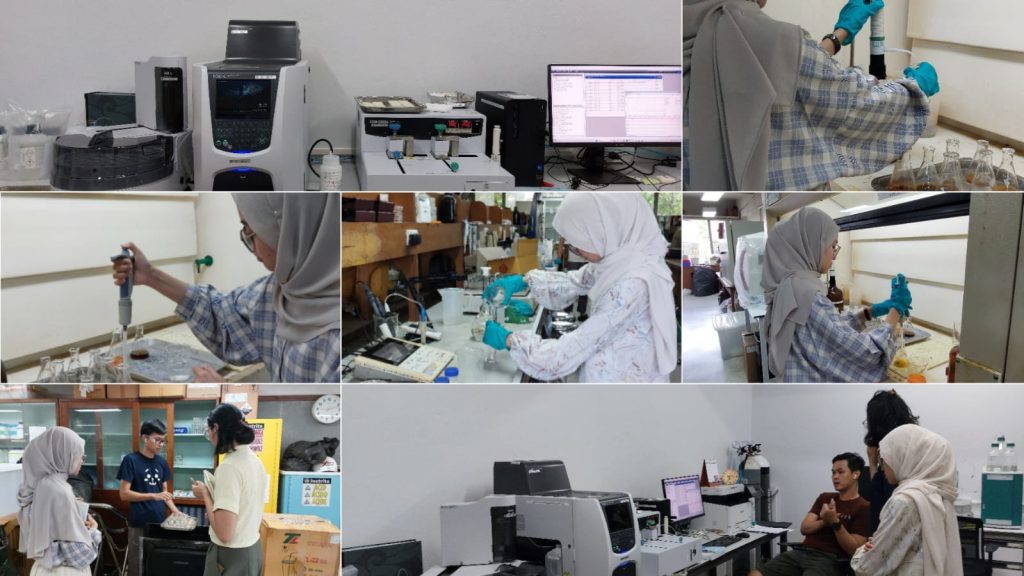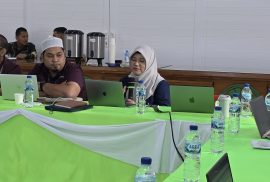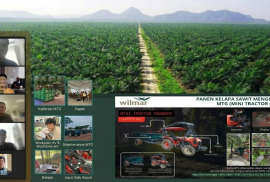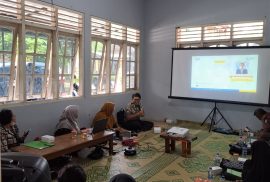
Bangkok, 12 September 2025 — Dr. Rizki Maftukhah, a faculty member of the Department of Agricultural and Biosystems Engineering (DTPB), Faculty of Agricultural Technology (FTP) UGM, together with Agricultural Engineering Master’s student Qanita Haniyah Nuha, participated in laboratory training and capacity-building activities at the Soil Laboratory, Faculty of Forestry, Kasetsart University, Thailand.
The program aimed to enhance research capacity for both faculty and students through laboratory- and geospatial-based mentoring and training. The advanced soil analysis facilities at Kasetsart University serve as an essential platform for strengthening analytical skills, particularly in the study of soil quality and agricultural adaptation in geothermal areas.

This training is part of the Joint Supervision program between FTP UGM and the Faculty of Forestry, Kasetsart University. The program focuses on the research project titled “Assessment of Geothermal-Induced Soil Contamination and Its Impact on Soil Health Parameters in the Agricultural Lands of Dieng Plateau”, led by Dr. Ngadisih. The research team consists of Dr. Rizki Maftukhah (UGM), Dr. Orracha Sae-Tun, M.Sc., and Asst. Prof. Dr. Roongreang Poolsiri (Kasetsart University), with graduate student Qanita Haniyah Nuha under supervision.
Beyond strengthening international academic networks, this initiative is aligned with UGM’s roadmap for academic and research excellence. It also contributes to achieving SDG 2 (Zero Hunger) by promoting sustainable agricultural productivity, SDG 13 (Climate Action) through research on agricultural adaptation to extreme climate impacts, and SDG 15 (Life on Land) by supporting soil quality protection and restoration as part of terrestrial ecosystems.
Through this training, it is expected that both students and faculty will enhance their analytical capacity upon returning to Indonesia. Furthermore, this collaboration is anticipated to serve as a model for international synergy in addressing global challenges related to food security, climate change, and agricultural land sustainability.




